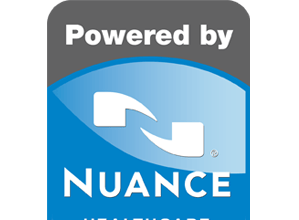It seems every week there’s another health IT event in Seattle these days and we’re pretty excited about that. The grassroots efforts to build a health community really seem to be starting to take hold.
It seems every week there’s another health IT event in Seattle these days and we’re pretty excited about that. The grassroots efforts to build a health community really seem to be starting to take hold. This week we had the pleasure of attending and presenting about Wellpepper at a Technology Alliance and WBBA event called “Transforming Healthcare Through IT: Investment Opportunities in an Emerging Sector” held at K&L Gates beautiful offices. The WBBA officially launched their new Innovative Health initiative at the event: they are adding a third focus area to their current biomedical and biotechnology pillars and taking up the mantle of healthcare IT. Given that the lines are blurring between medical devices and mobile devices and software in particular, and that the WBBA are experts in healthcare regulations, this is a welcome move.

The view from K&L Gates Seattle, it was that beautiful this week. Source: K&L Gates
The event was kicked off by Rob Arnold of VantagePoint Investments, who outlined why health IT is so hot right now with a review of a number of trends including patient-centered care and the new requirements of the Affordable Care Act. However, he pointed out that Seattle really didn’t register as a center of healthcare IT investment. San Francisco, New York, Chicago, and even Atlanta and Nashville were far ahead. And yet, as we’ve heard many times we have some of the best healthcare systems in the country and some of the best software developers in the world. What we don’t have is investment, but this event, by bringing together investors, startups, and providers was aiming to change this.
Next up was a panel focused on the landscape of and future of IT moderated by John Koster, MD and former CEO of Providence Health & Services, with panelists Todd Cozzens from Sequoia Capital, Mark Gargett, VP of Digital Integration, Providence Health & Services, and Ralph Sabin from Fortis Advisors. The current state of health IT is not great: 80% of health records are running on a 45-year old technology called MUMPS (ie Epic), and 65% of providers continue to look for cost savings instead of at the $1T opportunity to fundamentally change how we do healthcare. The current systems were characterized as a “big calcified hairball.”
EMRs need to transform and unlock the data in them to change this system, to be able to be prescriptive rather than reactive, for example, imagine identifying asthma patients and telling them about environmental changes that might impact their health.
All the panelists agreed that the transformation needs to come from within the healthcare system, and cited Microsoft, Google, and GE’s entrance and exit from personal and electronic health records as examples of why technology alone without a keen understanding of the process and system will not effect change.
On the other hand, there are lots of opportunities to fix small problems, for example, patient workflow or outpatient care. However, these incremental changes are harder to predict: it’s easier to see the large scale changes necessary than to fully understand the steps on the road to get there. This may be why the venture money shies away.
The panel also agreed that healthcare is becoming a retail model with patients as consumers driven by both high-deductibles and also expectations from conveniences in other industries. Providence recognized that consumers are increasingly in control of their health decisions and “want to be delighted.” Todd Cozzens from Sequoia predicted the winners would be those who could deliver on a retail experience, and close to or possibly even in a patient’s home.
Similar to discussion we’ve heard at other conferences about the future of healthcare, there was a belief that the fundamental skillset of individual healthcare providers needed to change: in the past remembering a number of facts and applying them in a particular situation was important. With technological advances like IBM’s Watson, computers can do a much better job of diagnosis and the role of the doctor changes to a social role of translating diagnosis into an effective care plan. Or as we’ve heard it characterized: “putting the care back in caregiving.”
Next up Mary Haggard and Joe Piper from Point B Managing Consultants and Capital, showed their “Health IT Landscape Matrix” which was an attempt to characterize Washington’s health IT companies according to the big buckets of Triple Aim categorized as “Creating Efficiency,” “Unlocking the Data,” and “Improving the Delivery of Care.” At the same time they attempted to categorize by the buyer (consumer, employer, provider, or payer), which wasn’t quite as easy and probably reflects the changing landscape of healthcare. What was amazing about the exercise was to see the diversity and number of players in Washington State. This is a great start to hopefully what will become a definitive reference source for the local industry.
Next up were the startup pitches from Corengi, Owl Outcomes, Health123, MedaNext, Spiral Genetics, 2Morrow, CadenceMD, TransformativeMed, and Wellpepper, which ranged from patient engagement to unlocking data genomics to unlocking data in the EMR (not sure which is harder ;)). We’ve been at events with most of these companies before and it was great to hear how they have gained traction and how their businesses and stories are evolving. As a presenting startup, we were happy to be in such great company both with our fellow audience and with attendees.








